The debate on the optimal timing for school start times has gained considerable momentum, presenting compelling reasons why school should start later. This growing consensus among educators, parents, and researchers highlights the profound benefits such a shift could have on student health and academic performance.

Traditionally, schools have adhered to an early morning schedule, a routine that is increasingly viewed as misaligned with adolescent physiological rhythms and conducive to chronic sleep deprivation. This discrepancy between school schedules and the natural sleep patterns of teenagers has sparked a significant reevaluation of how educational institutions can best support the developmental and learning needs of their students.
Advocating for later start times is not merely a call for more sleep; it represents a holistic approach to enhancing the educational environment by optimizing the physical and mental well-being of students. The argument for delayed start times is supported by a wealth of research indicating improvements in various areas of student life, including academic achievement, mental health, and physical wellness.
Reasons why School should Start Later in the Morning:
– Better for students sleep and attendance
– Don’t need to stay up as late to do homework because you can do it in the morning— Pisha 🍉 ⪩⚢⪨ Et Le Ena Piou (@mafuanenautism) September 30, 2022
However, transitioning to a later schedule also presents logistical challenges and potential drawbacks, such as impacts on extracurricular activities, family routines, and community infrastructure, which must be thoughtfully addressed.
This article embarks on a comprehensive examination of the subject, exploring the multifaceted benefits of starting school later, the considerations and challenges that come with such a change, and the real-world implications as evidenced by initiatives like those undertaken by the Seattle School District. Through this analysis, we aim to provide a balanced perspective on why the shift towards later school start times could represent a significant step forward in fostering environments that truly cater to the needs and potentials of our young learners.
On this page, you will discover:
- The Benefits of Starting School Later →
- The Potential Drawbacks of Starting School Later →
- The Impact of Delayed School Start Times in Seattle School District →
7 Reasons Why School Should Start Later
Wendy Troxel attributes the lack of sufficient sleep among teens not to Snapchat, social lives, or hormones, but to public policy, specifically early school start times, and shares insights from her dual perspective as a sleep researcher and a mother in a must-watch video on how this affects adolescents during a crucial stage of their lives.
Now, let’s delve into the compelling reasons why school should start later, exploring seven key factors that highlight the benefits of adjusting school schedules for the betterment of student health, engagement, and academic performance.
1. Improves Academic Performance
Adequate sleep is essential for adolescents, who are at a pivotal stage of development and learning. The evidence linking sufficient rest to improved academic outcomes is compelling, suggesting that later school start times could play a key role in enhancing students’ educational achievements.
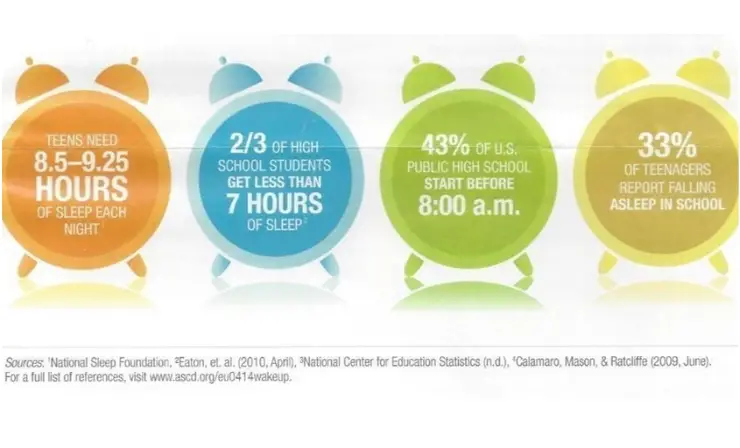
The correlation between adequate sleep and enhanced academic performance is well-documented. Studies by organizations such as the National Sleep Foundation underscore the critical role sleep plays in cognitive functions, including memory retention, focus, and decision-making processes. Adolescents, who are in a crucial phase of brain development, particularly benefit from extended sleep, as it directly influences their ability to learn and excel academically.
A later school start time aligns with their natural sleep cycles, allowing for a more alert and engaged mindset during school hours. This alignment not only fosters an environment conducive to learning but also translates into tangible outcomes such as higher test scores and grade improvements. Consequently, the shift to later start times could serve as a strategic approach to bolster academic success, addressing educational priorities and student well-being in tandem.
Why It Is Important
- Academic success is key for future opportunities, shaping higher education and career paths.
- Enhanced performance from later start times correlates with better cognitive functions: memory, attention, and problem-solving.
- Quality sleep, aligned with circadian rhythms, leads to deeper, more restorative rest, essential for learning and memory.
- Alert, focused students are more likely to actively participate and retain information.
- Benefits individual students and contributes to a positive, productive learning environment.
- Later start times are a strategic approach to enhance educational outcomes and prepare students for success.
Discover in this video how mastering healthy sleep habits can serve as a genuine performance enhancer in the classroom, leading to better sleep and higher GPAs for students.
2. Allows Teens to Get More Sleep
The mismatch between teenagers’ biological clocks and early school schedules is a significant barrier to their health and well-being. Recognizing the critical importance of sleep for this age group underlines the need for adjustments in school start times to support their developmental needs.
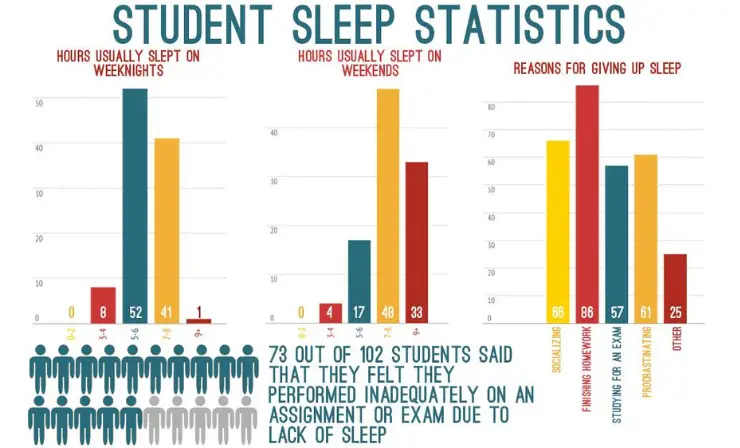
Adopting later school start times harmonizes with teenagers’ biological clocks, addressing the mismatch between early school schedules and adolescents’ sleep needs. The American Academy of Sleep Medicine’s recommendations highlight the importance of adequate sleep for teenagers, a demographic often burdened by early start times and societal pressures that encroach on their sleep duration. This shift not only ensures they meet the optimal sleep quota but also enhances their overall health and cognitive function.
The benefits extend beyond the mere number of hours slept; the quality of sleep improves, fostering better mental, emotional, and physical health. This holistic improvement in well-being is crucial during adolescence, a period marked by significant growth and development challenges.
Why It Is Important
- Adequate sleep is crucial for teenagers’ physical and mental development, supporting growth, immune response, and emotional regulation.
- Recommended sleep leads to fewer behavioral issues and improved decision-making.
- Important during adolescence, a time of significant development.
- Sufficient sleep is linked to better mood regulation and reduced risk-taking.
- Schools can help teens get the necessary sleep, promoting academic success and well-being.
- Recognizes the link between physical health, mental health, and academic achievement.
Behavioral and social scientist Wendy Troxel explains how early school start times essentially cause daily jetlag for students and advocates for a change in their morning routines in a compelling video worth watching.
3. Reduces Absenteeism
Healthier students are more likely to attend school consistently, underscoring the impact of sleep on immune function and overall wellness. By adapting school schedules to allow for more sleep, educators can directly contribute to reducing absenteeism and enhancing the learning environment.
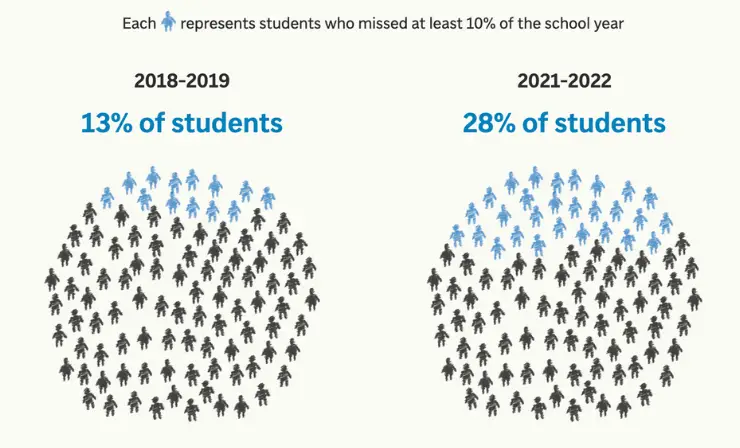
Later school start times contribute to a healthier student body, which directly impacts attendance rates. Sleep deprivation compromises the immune system, making students more susceptible to illness and, consequently, more likely to miss school. By ensuring that students get sufficient rest, schools can see a reduction in absenteeism.
This not only benefits students’ academic performance and continuity of learning but also contributes to a more vibrant, participatory school environment. Improved health outcomes due to adequate sleep thus serve as a preventive measure against common ailments, ensuring that students remain present and engaged in their educational journey.
Why It Is Important
- Regular attendance is essential for continuous learning and success.
- Each missed day is a lost opportunity for learning and interaction.
- Absenteeism creates knowledge gaps, affecting confidence and curriculum engagement.
- Reducing absenteeism with later start times ensures full participation in education.
- Improves academic outcomes, social integration, and school connectedness.
- Alleviates administrative and teaching challenges, leading to a more efficient educational process.
Matt Pearl explores how what seems like a harmless day off can quickly escalate into habitual truancy, and highlights one school district’s innovative plan to combat this issue and refill empty seats in a must-see video.
4. Lowers Risk of Depression and Mental Health Issues
The crucial relationship between sleep and mental health, particularly in adolescents, cannot be overstated. Addressing sleep deprivation through later school start times is a preventative measure that could significantly improve students’ mental health outcomes.
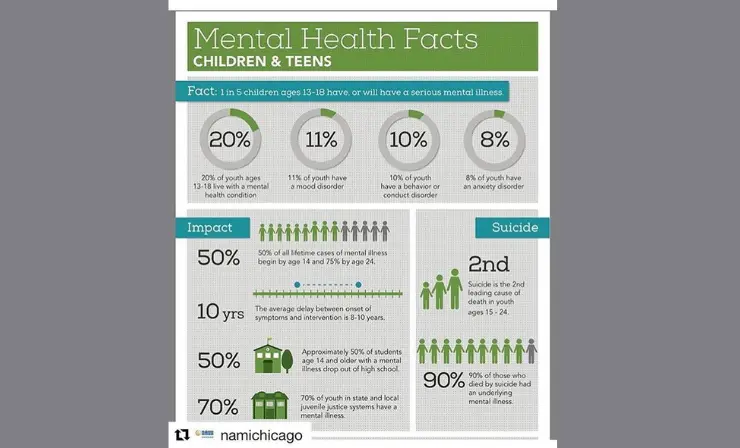
The interplay between sleep and mental health is critical, especially during the volatile adolescent years. Inadequate sleep has been consistently linked to increased risks of depression, anxiety, and other mental health issues. By shifting school start times later, students are afforded the opportunity to align their sleep schedules with their biological needs, significantly mitigating these risks.
This preventive approach to mental health is of paramount importance, considering the rising incidence of mental health challenges among teenagers. Providing an environment that supports adequate sleep can be a fundamental strategy in promoting mental well-being, offering a buffer against the stressors and challenges of adolescence.
Why It Is Important
- Mental health’s critical role in students’ well-being and success is undeniable, with adolescence being a particularly vulnerable period for the onset of issues like depression and anxiety. Sleep deprivation significantly exacerbates these conditions.
- Ensuring adequate sleep is foundational for robust mental health, enabling students to better manage stress and the myriad challenges of adolescence with greater resilience.
- Schools that implement later start times contribute to a proactive approach to mental health care, leading to a noticeable reduction in the incidence and severity of mental health issues among students.
- This initiative fosters a supportive educational environment where every aspect of student well-being is nurtured, promoting a healthy school climate conducive to learning and growth.
William Brangham delves into why many teens struggle to get the recommended eight to ten hours of sleep, the prevalence of insomnia among them, and the significant impact on their mental health in this insightful video.
Delve into the critical role of mental health in educational success with “8 Reasons Why Students Should Have Mental Health Days: A Research-Based Analysis” offering evidence-based arguments for the integration of mental health days into school policies to enhance student well-being and academic performance.
5. Reduces Drowsy Driving in Teens
With the initiation of driving coinciding with the teenage years, the risk of drowsy driving becomes a pressing concern. Adjusting school start times to ensure teenagers get enough sleep could be a critical step in enhancing road safety and reducing accidents.
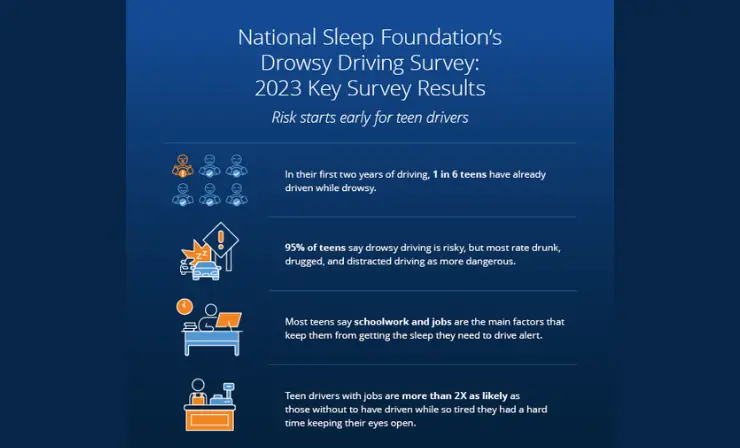
Teenage years coincide with the commencement of driving for many, introducing risks associated with drowsy driving. The CDC has identified sleep deprivation as a key factor in teen driving accidents. By enabling teens to align their sleep schedules with natural rhythms through later school start times, the incidence of drowsy driving can be significantly reduced.
This has the dual benefit of enhancing individual safety and contributing to broader public safety outcomes. Preventing accidents through such measures not only saves lives but also fosters a culture of responsible driving habits among young individuals.
Why It Is Important
- The safety of teenage drivers is a paramount concern, with drowsy driving posing a significant risk not just to the drivers but to the community at large. The alertness of drivers is crucial and is directly influenced by the amount of sleep they have received.
- By pushing school start times later, we can mitigate the risk of accidents caused by sleep deprivation, significantly enhancing public safety and specifically safeguarding teenage drivers, who are often less experienced and more vulnerable on the road.
- This measure not only prioritizes the health and safety of students but also contributes to the broader goal of ensuring safer roads and communities.
Explore the findings of a new study on teen drivers and the risks of drowsy driving in this informative video recommended for viewing.
6. Helps Teens Feel Happier
Sleep deprivation negatively impacts adolescents’ mood and overall happiness. Schools that adopt later start times can help align students’ schedules with their natural sleep patterns, fostering improved well-being and a more positive school experience.

Aligning school schedules with teenagers’ natural sleep cycles can significantly enhance their overall happiness and well-being. The dissonance between early school start times and adolescents’ biological predisposition for later sleep and wake patterns can lead to chronic sleep deprivation, affecting mood and well-being.
By adopting later start times, schools can help rectify this misalignment, allowing students to adhere to a more natural sleep schedule. This adjustment can lead to improved mood, greater resilience, and a more positive outlook on life, which are crucial for healthy adolescent development and academic success.
Why It Is Important
- The well-being and happiness of students are essential for their active engagement and enjoyment of their educational journey. Students who are well-rested show a marked increase in engagement, curiosity, and motivation.
- By aligning school start times with teens’ natural sleep cycles, there’s a significant improvement in students’ overall mood and outlook on life, which in turn enhances their social relationships and reduces conflict.
- This positive adjustment has been linked to not only a more vibrant school environment but also to tangible improvements in academic performance, demonstrating the deep interconnectedness between emotional well-being and educational outcomes.
Discover how a high school in Dedham, Massachusetts is combating student feelings of hopelessness with an innovative course on finding happiness through savoring experiences and fostering relationships in this inspiring video.
7. Reduced Stress
The stress induced by early mornings and lack of sleep can significantly affect students’ academic and social lives. By moving the start of the school day later, schools can alleviate a major source of daily stress, contributing to a healthier, more conducive learning environment.
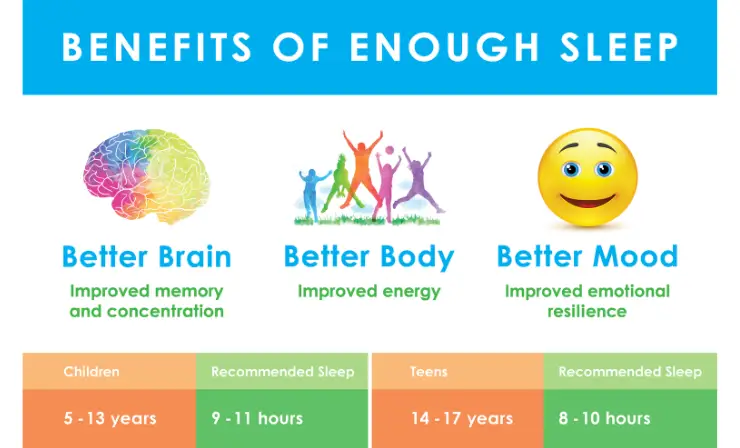
The impact of sleep on stress levels cannot be overstated. Starting school later can significantly reduce the morning rush, a source of daily stress for many students. This reduction in stress can have a domino effect on various aspects of students’ lives, including their academic performance, social interactions, and overall mental health.
By mitigating one of the many stressors in students’ lives, schools can create a more supportive and productive learning environment. The benefits of such a change extend beyond the individual, positively affecting the school culture and community at large.
Why It Is Important
- Stress stands as a formidable barrier to both learning and mental health, with its ability to impair cognitive function and negatively affect academic performance. The rush and pressure of early mornings contribute significantly to students’ stress levels.
- Adopting a later start to the school day offers students a schedule that is more in sync with their natural sleep patterns, effectively reducing morning stress and allowing for a calmer, more focused start to their academic activities.
- This reduction in stress is beneficial not only for students’ academic performance but also for their mental and physical health, contributing to a more positive, supportive, and productive educational environment.
Discover why starting school later could help teens get the more sleep they need and improve their lives in various ways in this video, addressing common concerns about sleep needs for younger people.
Discover “7 Research-Based Reasons Why Students Should Not Have Homework: Academic Insights, Opposing Perspectives & Alternatives” for a comprehensive analysis of the homework debate, presenting alternative strategies to improve student learning.
The Potential Drawbacks of Starting School Later
1. Scheduling Sports and Extracurriculars Becomes More Difficult
The integration of later school start times presents a unique set of challenges for the scheduling of sports and extracurricular activities, which are vital components of a student’s holistic development. The shift could potentially disrupt the delicate balance between academic commitments and extracurricular engagement, affecting students’ ability to participate in these valuable experiences.

One potential drawback of starting school later is the complication it introduces to scheduling sports and extracurricular activities. Many students are actively involved in after-school programs, including sports teams, clubs, and other organizations that play a significant role in their development. This presents a clear argument for why school should not start later, as it could lead to conflicts with extracurricular activities that depend on fixed schedules. This can result in logistical challenges for both students and program coordinators, potentially causing students to miss out on opportunities that contribute to their growth beyond academics.
In response to this challenge, schools and communities can adapt by rethinking and possibly reinventing the scheduling and structure of extracurricular activities. Flexibility in planning, such as holding some activities in the morning or making more efficient use of weekends, can ensure students continue to benefit from these programs. Moreover, a later start time might actually enhance student participation and performance in extracurriculars, as students would be better rested and more focused, potentially leading to a richer extracurricular experience.
2. Increases Childcare Costs and Logistical Challenges for Working Parents
Transitioning to later school start times poses significant logistical and financial challenges for working parents, necessitating adjustments in childcare arrangements and potentially disrupting daily routines. This change can introduce added stress and financial burden on families, complicating the work-life balance that is crucial for the well-being of both parents and students.

The shift to later school start times can increase childcare costs and create logistical challenges for working parents. Parents may find themselves needing to arrange for additional morning care or adjust their work schedules to accommodate the change. This can add financial strain and complicate the balance between work and family life, creating stress and potentially impacting the overall well-being of families.
However, the community and employers can play a crucial role in easing this transition. Workplaces could offer more flexible working hours or remote work options to accommodate the needs of parents. Additionally, schools and community organizations might develop affordable before-school programs to support families. This approach not only addresses the logistical and financial concerns but also fosters a community-centric solution that benefits both students and their families.
3. May Make After-School Jobs and Activities More Difficult
Adjusting school hours to start later in the day could inadvertently impact students’ ability to engage in after-school jobs and activities, critical for their personal development and financial support. This shift may limit the time available for such commitments, posing challenges for students who depend on the afternoon and early evening hours for work and extracurricular participation.

For students who rely on after-school jobs for income or participate in non-school activities, a later dismissal time can significantly reduce the available hours for work and other commitments. This could affect their ability to support themselves or their families financially and limit their engagement in valuable community or personal development activities.
On the flip side, a later start time can lead to more alert and productive students, potentially making them more efficient in balancing work, activities, and school responsibilities. Schools and local businesses could collaborate to offer flexible working arrangements for students, recognizing the mutual benefits of supporting adolescent development while maintaining their contribution to the workforce and community engagement.
4. Reduces Time for Homework and Family Activities
A later dismissal time from school may compress the window available for homework, relaxation, and family time, essential components of a student’s well-being and academic success. This reduction in available time during the evening can increase stress and limit opportunities for meaningful family interaction and adequate academic preparation.

With a later end to the school day, students might find themselves with less time for homework, relaxation, and family activities in the evening. This compression of non-school hours could lead to increased stress, less downtime, and diminished family interaction, which are all important for a student’s well-being and academic success. Uncover persuasive reasons against adopting year-round schooling in “Comprehensive Analysis: 8 Strong Reasons Why School Should Not Be Year-Round” highlighting its possible effects on both students and educators.
This challenge necessitates a more efficient approach to homework and after-school time management, potentially encouraging schools to reassess the volume and nature of homework assigned. With strategic planning and support, students can learn to manage their time effectively, ensuring they have sufficient opportunities for both academic responsibilities and family engagement. Additionally, the quality of family time can improve when students are less stressed and more rested, making the time spent together more meaningful.
The Impact of Delayed School Start Times in Seattle School District
In the 2016-2017 academic year, the Seattle School District embarked on a pioneering initiative to address the chronic sleep deprivation affecting its secondary school students. Recognizing the mounting evidence on the importance of adequate sleep for adolescents’ physical, and mental health, and academic performance, the district made a decisive move to delay the start times of its secondary schools from 7:50 am to 8:45 am. This change was aimed at aligning school schedules more closely with students’ biological sleep needs, thereby enhancing their overall well-being and academic outcomes.

Researchers from the University of Washington seized this opportunity to conduct a comprehensive study, both before and after the implementation of the new start times. Their research included students from two public high schools in Seattle, providing a valuable case study on the impacts of such policy changes.
The findings, published in Science Advances, revealed significant benefits stemming from the later start times. On average, students gained an additional 34 minutes of sleep per night, increasing their total nightly sleep from six hours and 50 minutes to seven hours and 24 minutes. This increase brought students closer to achieving the recommended sleep amount and marked a reversal in the century-long trend of gradual sleep loss among adolescents.
The benefits of this policy change extended beyond just improved sleep duration:
- Improved Sleep Duration: The policy change led to longer sleep times for students.
- Enhanced Academic Performance: Observations showed a significant increase in students’ academic achievements.
- Increased Punctuality and Attendance: Notably higher rates of on-time arrivals and attendance, especially in economically disadvantaged schools.
- Narrowing Socioeconomic Learning Gap: The change suggests the potential to reduce disparities in educational outcomes between low and high socioeconomic groups.
- Reduced Daytime Sleepiness: Students experienced less sleepiness during the day, indicating better sleep quality and its positive effect on daily engagement and functioning.
Dr. Tara Narula reports on a Seattle school district that transitioned to a later start time, showcasing the positive outcomes of the study, making it a highly recommended video to watch for insights on the impact of such changes.
Despite the success observed in Seattle, such shifts in school start times remain relatively rare across the United States, where the typical start time still hovers around 8 a.m. However, the Seattle School District’s experience stands as a compelling testament to the benefits of later start times, supported by the American Academy of Pediatrics’ advocacy for this change as an effective countermeasure to the widespread issue of sleep deprivation among teenagers.
The Seattle School District’s initiative demonstrates a proactive approach to student health and education, providing valuable insights and evidence for other districts contemplating similar adjustments. By prioritizing the sleep needs of students, the district not only improved their academic and health outcomes but also set a precedent for the importance of aligning educational policies with scientific research on adolescent well-being.
Useful Resources
- Time Management Activities For High School Students
- Daily Routine For Students: Recommendations And Techniques
- How to Reduce Student Stress and Excel in School
Final Thoughts
The conversation surrounding delayed school start times is complex, yet the evidence, especially from the Seattle School District, provides clear reasons why school should start later, highlighting the potential for significant positive changes in student well-being and academic success. As education stakeholders consider the future of school schedules, balancing the advantages with logistical concerns will be crucial. Ultimately, the goal is to create educational environments that best support the development and achievement of every student.
References
- How Would Later School Start Times Affect Sleep?
- Sleep is key to help teens recharge for success this school year
- 4 Benefits of Later School Start Times
- Teenagers and sleep
- Drowsy Driving: Asleep at the Wheel
- School Start Times for Adolescents
- How Would Later School Start Times Affect Sleep?
- Later School Start Times More Popular, But What Are the Drawbacks?
- Students can benefit from starting school later – study
- Overview of 22 Low-Code Agencies for MVP, Web, or Mobile App Development - October 23, 2024
- Tips to Inspire Your Young Child to Pursue a Career in Nursing - July 24, 2024
- How Parents Can Advocate for Their Children’s Journey into Forensic Nursing - July 24, 2024
